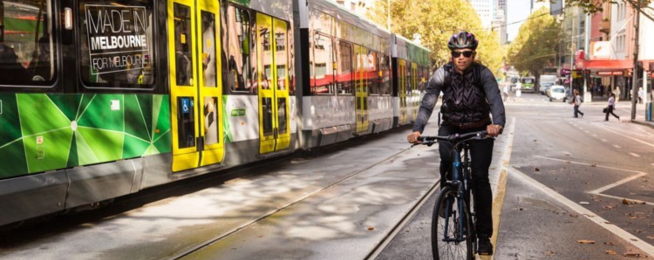Some of Australia’s fiercest advocates of road building and the car-based lifestyle are starting to have second thoughts: maybe more cars aren’t the answer to moving people today?
In a move that has stunned Australia’s hide-bound transport brotherhood, leading lobby group Roads Australia has called for “Australia's love affair with the car to come to an end”.
Instead they want massive investment in public transport infrastructure.
"Have we backed the wrong horse in the transport stakes?” Roads Australia president, David Stuart-Watt asks.
"At the end of the 19th and into the early 20th century, our state and national leaders took a punt on rail. In fact, as a nation we were, at the time, among the world’s leading investors in rail infrastructure, both regional and suburban.
"After World War Two, as our cities grew outwards and cars became more affordable, our investment focus switched to roads.
"Hindsight is, of course, a wonderful thing. But today, as we sit in long lines of traffic and contemplate what it will be like when another one or two million people drop into the rat race, more and more of us are probably wondering—have we backed the wrong horse?
"Late last year, Roads Australia led a delegation of public and private sector leaders to Tokyo, Seoul and Singapore to get a better understanding of how these cities are coping with population growth, transport and liveability.
"The conclusion we drew is that ordinary Australians, businesses and governments require an urgent and major change of mindset if we’re to maintain both our standard of living and our sanity.
"In essence, the Australian love affair with the car needs to come to an end. In its place, we need to invest massively and exponentially in the renewal and expansion of our public transport infrastructure and modes”, Mr Stuart-Watt said.
Bicycle Network welcomes Mr Stuart-Watt and his organisation into the modern world.
Progressive cities around the world have been investing heavily in public transport for decades, and integrating cycling and walking into these highly efficient people moving networks.
This is making them highly attractive in the world-wide competition for new businesses, talented people, education and research institutions, and tourism.
Australian cities, with their sprawl, congestion, and poor public and active transport options, will slip behind.
Roads Australia appears to have been shocked into a reappraisal during a recent study tour of Asia.
“In the Asian cities we visited, public transport thinking, investment and culture has dominated the strategic agenda for generations”, Mr Stuart-Watt said.
"In Tokyo, for example, 51 per cent of journeys are via public transport, 37 percent cycling/walking and only 12 per cent by private car. Public transport journey share in Seoul and Singapore is even greater – 66 and 59 per cent respectively, with private car usage at 23 and 29 per cent.
"Contrast those stats with Sydney and Melbourne, where public transport accounts for only 27 and 18 per cent of all journeys respectively, and private car 64 and 74 percent.
"More pointedly, our northern neighbours are intent on decreasing the share of private car journeys even further, with forward investment priorities focused squarely on supporting the further expansion of mass transit.
"What’s more, the rail-based mass transit systems in these Asian mega-cities have been planned and built as strongly interconnected grid networks characterized by high frequency, fast, affordable, safe and reliable services.
"We’re talking about a fundamental, generational change in transport thinking, planning, spending and delivery. We won’t see results overnight, but we have to stay focused on the end-game”, Mr Stuart-Watt said.
Become our friend
Find out more about Bicycle Network and support us in making it easier for people to ride bikes.


